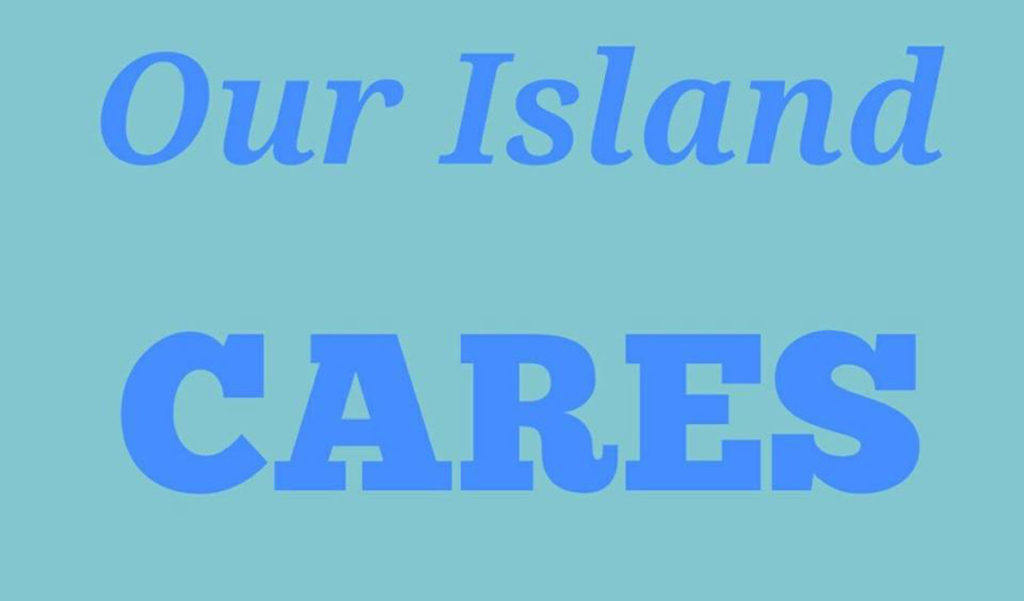Vinalhaven has always had a substance abuse problem and, historically, I guess we were OK with it, but now we’ve got a crisis and we’re not.
Addiction is a disease; it is not a moral failing. There is no room for argument. While the initial exposure might have been a dumb choice—and who among us has not thus chosen—the effect is that opioids attach to and modify receptors in the brain to such an extent that the need to indulge obliterates any suggestion that it might be a bad idea. Or perhaps the initial exposure was an indiscriminate prescription for relief from pain or affliction. The receptors make no distinction.
Our Island CARES formed last year to promote and build healthier lifestyles for our community through education, non-judgmental support, and understanding for the prevention of substance abuse. We recognized that if real progress was to be made—if our 1,200 fellow islanders are to become allies in this effort—the shame that wrongfully attaches to those and to the families of those suffering from addiction must be overcome. To our great relief and benefit, during the four months we’ve been in existence, five recovering addicts have stepped forward to acknowledge their disease and have become among the strongest contributing members of CARES.
We have benefited enormously from their participation and accomplishments and they continue to recover with our encouragement. We know as this trend continues our community problem will become, instead, a community effort and it will become easier to effectively address the two issues that are our ultimate goals: prevention and recovery.
The tools to prevent addiction are part of our island school curriculum. But talking alone doesn’t cut it. Talking about the dangers of drug abuse is only effective when the skills to effectively deal with those dangers are taught as well.
Those skills can be learned more readily if the dysfunction that can predict eventual distress, including substance abuse, can be revealed beforehand. Related training about adverse childhood experiences (ACE) offers those skills. Experiences such as familial substance abuse, violence, humiliation, disorder, sexual assault, absent parents, and so on are proven to be accurate predictors of eventual problems which, like addiction, are also often diagnosed as a moral or behavioral failing instead of an illness. These traumatic negative experiences, like addiction, alter the way a young brain functions.
Comprehensive training, the result of extensive and proven research, is now readily available for dealing with ACE and for recognizing and overcoming those negative experiences, particularly in school. Three of our island faculty have attended a training session hosted by Open Communication (www.opencommunication.org) and are eager that everyone should share in this invaluable experience. CARES is focused on making ACE training available for others to equip themselves.
Of the five recovering addicts who have revealed themselves to us, one has accomplished freedom through prescribed methadone and counseling. A couple have managed the same through suboxone and counseling. Still another found salvation and freedom through Christ and another through purely holistic means. It’s clear that what works for one does not necessarily work for another.
The Mid-Coast Recovery Coalition (MCRC) under the direction of Ira Mandel has been effectively addressing the opioid crisis since 2016 and has trained volunteers as recovery coaches to help those struggling to recover. As any addict will tell you, it’s very difficult for anyone who has not experienced addiction to relate meaningfully to someone struggling with recovery. And, while anyone trained as a recovery coach can be a huge support to those trying to free themselves, those coaches who have achieved recovery themselves are invaluable in sustaining Recovery.
Our Island CARES has allied itself with MCRC and will offer intensive training on Vinalhaven June 8-11 to volunteers willing to become coaches. The training will involve a serious commitment, four consecutive seven-hour days. Eight of our own have already stepped forward, some in recovery themselves, some the family of those addicted or in recovery, some simply loving and compassionate islanders who want to help.
Finally, there is the daunting obstacle to recovery presented by trying to find meaningful employment and safe housing when anyone’s past is readily available and easily manipulated on social media. We must address these obstacles. Perhaps that means purchasing and staffing a recovery house of our own, providing employment opportunities and offering support.
Successful recovery does not mean someone who has no prospects for employment or shelter and who is living in a motel or trailer or the back room of a friend, but is managing to stay clean. Recovery means reintegration as successful and contributing members of our community, folks with a roof over their heads, who are meaningfully employed and who can look forward to enjoying life free of addiction.
Phil Crossman lives on Vinalhaven, where he serves as a selectman and owns and operates the Tidewater Motel.





